Is Carrageenan Vegan?
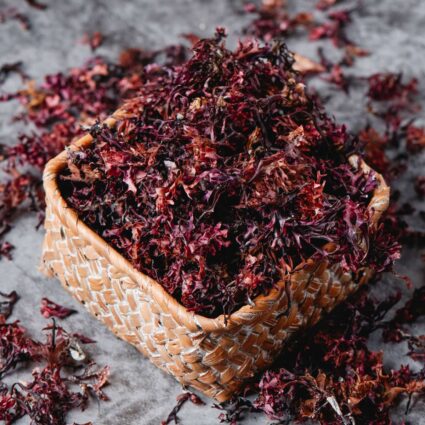
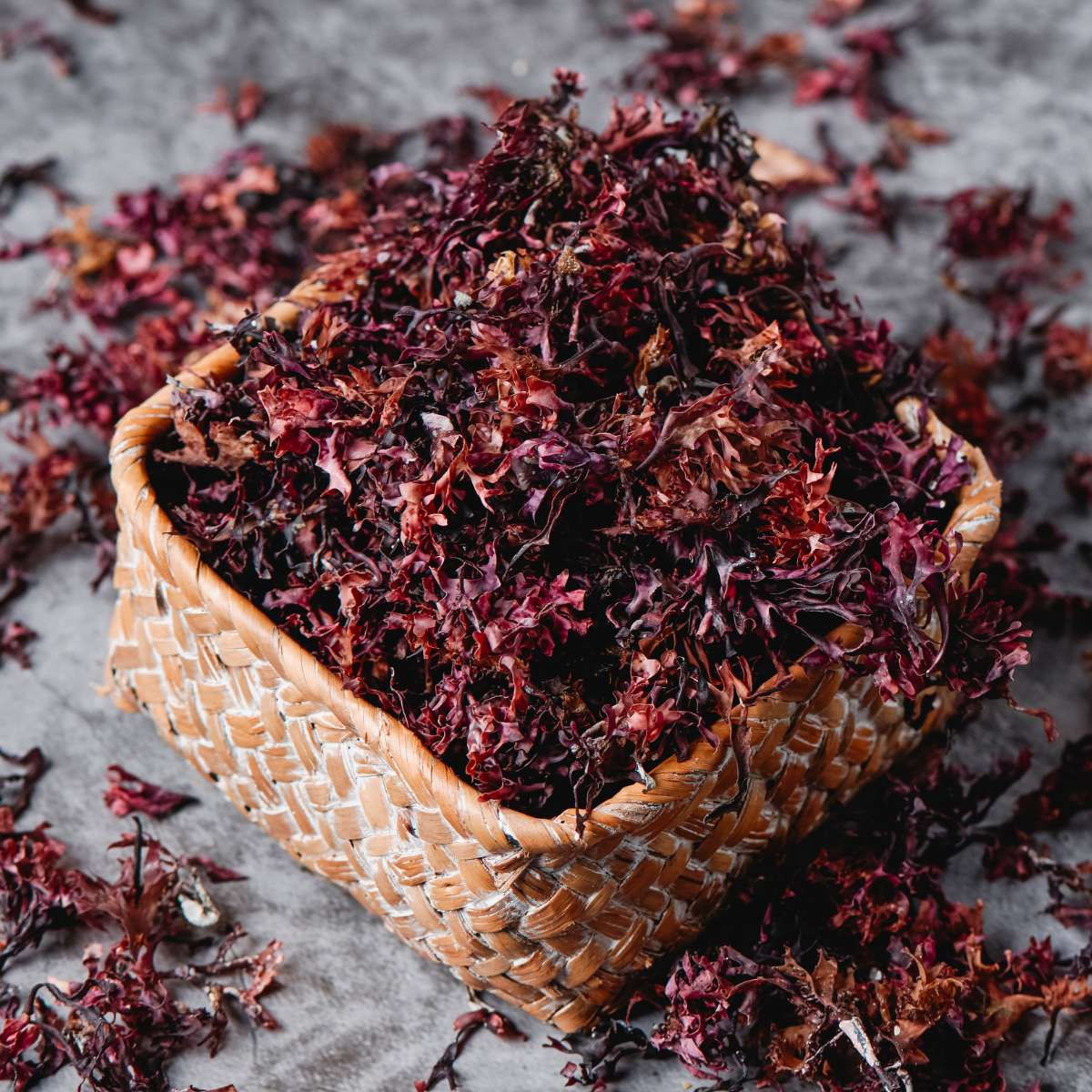
Table of Contents
What Is Carrageenan?
Carrageenan is a food additive derived from various species of red seaweed. It’s commonly used as a thickening, stabilizing, and gelling agent in a wide range of food products, including dairy alternatives, processed meats, and desserts.
Carrageenan is valued for its ability to improve the texture and mouthfeel of foods, but it has also been the subject of debate due to concerns about its potential health effects, particularly gastrointestinal inflammation.
Carrageenan can be categorized into three main types based on their chemical structure and properties:
- Kappa Carrageenan: This type forms strong and rigid gels in the presence of potassium ions. It is often used in dairy products like ice cream and yogurt to provide texture and stability.
- Iota Carrageenan: Iota carrageenan forms soft and elastic gels in the presence of calcium ions. It is commonly used in dairy desserts, such as puddings and custards, as well as in meat products.
- Lambda Carrageenan: Lambda carrageenan does not gel but acts primarily as a thickening agent. It is often used in dairy products like chocolate milk and cream to improve texture and mouthfeel.
Each type of carrageenan has specific properties that make it suitable for different food applications.
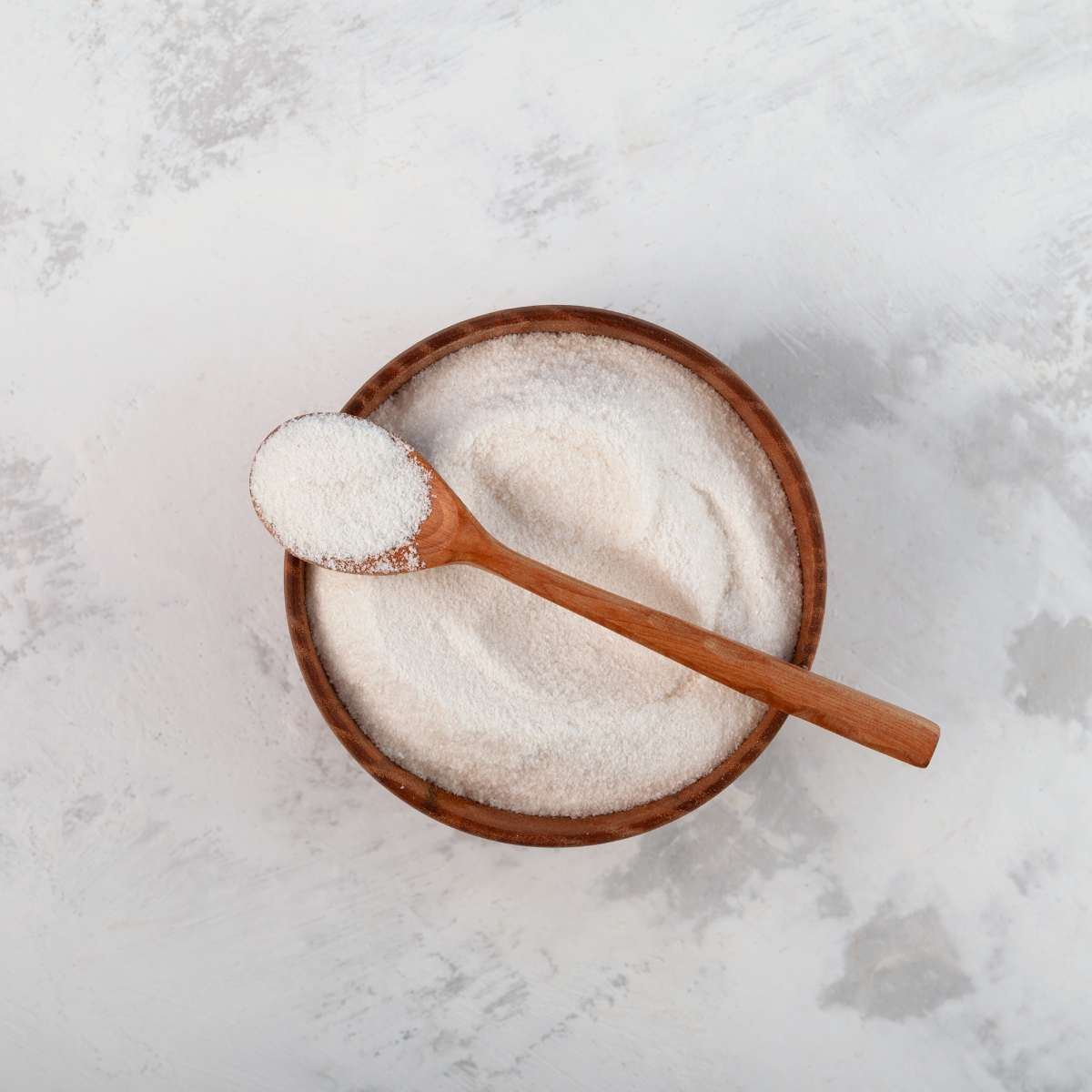
Is Carrageenan Vegan?
Carrageenan, derived from seaweed, is inherently vegan-friendly due to its plant-based origin. Unlike animal-derived ingredients such as gelatin or casein, carrageenan is harvested from red seaweed species without the need for animal exploitation.
As a result, carrageenan is often used in a variety of vegan food products, ranging from plant-based milks to vegan cheeses.
Is Carrageenan Safe?
You may have heard that carrageenan is not good for you and you should avoid all foods that contain it (such as plant milks and cheeses). The claim that made headlines a few years ago was that it can exacerbate inflammatory bowel disease and promote inflammation.
These claims were based on limited, weak evidence. The media has a tendency of misinterpreting research, assigning cause-and-effect and inappropriately extrapolating results. Concerns surrounded study results showing an increase of ulcerative colitis risk when guinea pigs were administered large quantities of carrageenan. Turns out humans are not guinea pigs and this outcome was not found in studies including other rodents, pigs, monkeys or humans. In other words, this is a “species-specific phenomenon.” Nonetheless, some suspicious results occurred in petri dishes of human embryonic lung cells as well as liver and intestinal cells. Still, no evidence to tell us the effect of carrageenan in human beings.
In 2013, Dr. Greger, a popular physician among vegans, highlighted studies that caused concerned but concluded that he wouldn’t recommend limiting healthful foods such as a plant milks that contain carrageenan but would use it as another reason to limit less-healthful foods such as ice creams that contain carrageenan.
In response to mounting concerns, the FDA sought safety committee input on this food additive, which has been “generally recognized as safe” since 1973, and in 2015 concluded, “[w]hile no evidence in the available information on undegraded carrageenan demonstrates a hazard to the public when it is used at levels that are now current and in the manner now practiced, uncertainties exist requiring that additional studies should be conducted.”
The latest buzz surrounds the recent publication of another in vitro study that found not only did carrageenan not promote inflammation or toxicity, but that human intestinal cells didn’t even absorb it. Study authors and the International Food Additives Council take these results very seriously and hope they put the kibosh on fears of carrageenan causing intestinal damage in humans.
So while we still don’t have high-quality human trials to prove the safety of carrageenan consumption, we do know that enjoying a variety of whole plant foods daily and limiting highly refined foods with solid fats and added sugars is best for health. If you have a medical condition such as inflammatory bowel disease and want individualized nutrition information, see a registered dietitian nutritionist.
Sources of Carrageenan
Carrageenan is extracted from various species of red seaweed, primarily belonging to the genera Chondrus, Eucheuma, and Gigartina. Some common species used for carrageenan production include:
- Chondrus crispus: Also known as Irish moss or carrageen moss, this species is native to the North Atlantic Ocean and is a traditional source of carrageenan.
- Eucheuma cottonii: Found in tropical regions, particularly in the Pacific Ocean, this species is cultivated extensively for carrageenan production.
- Eucheuma denticulatum: Another tropical species cultivated for carrageenan extraction, especially in Southeast Asia.
- Gigartina spp.: Various species within the Gigartina genus are also utilized for carrageenan extraction, contributing to the global supply of this food additive.
These seaweeds are harvested, dried, and processed to extract carrageenan, which is then refined and purified for use in food, pharmaceuticals, and other industrial applications.
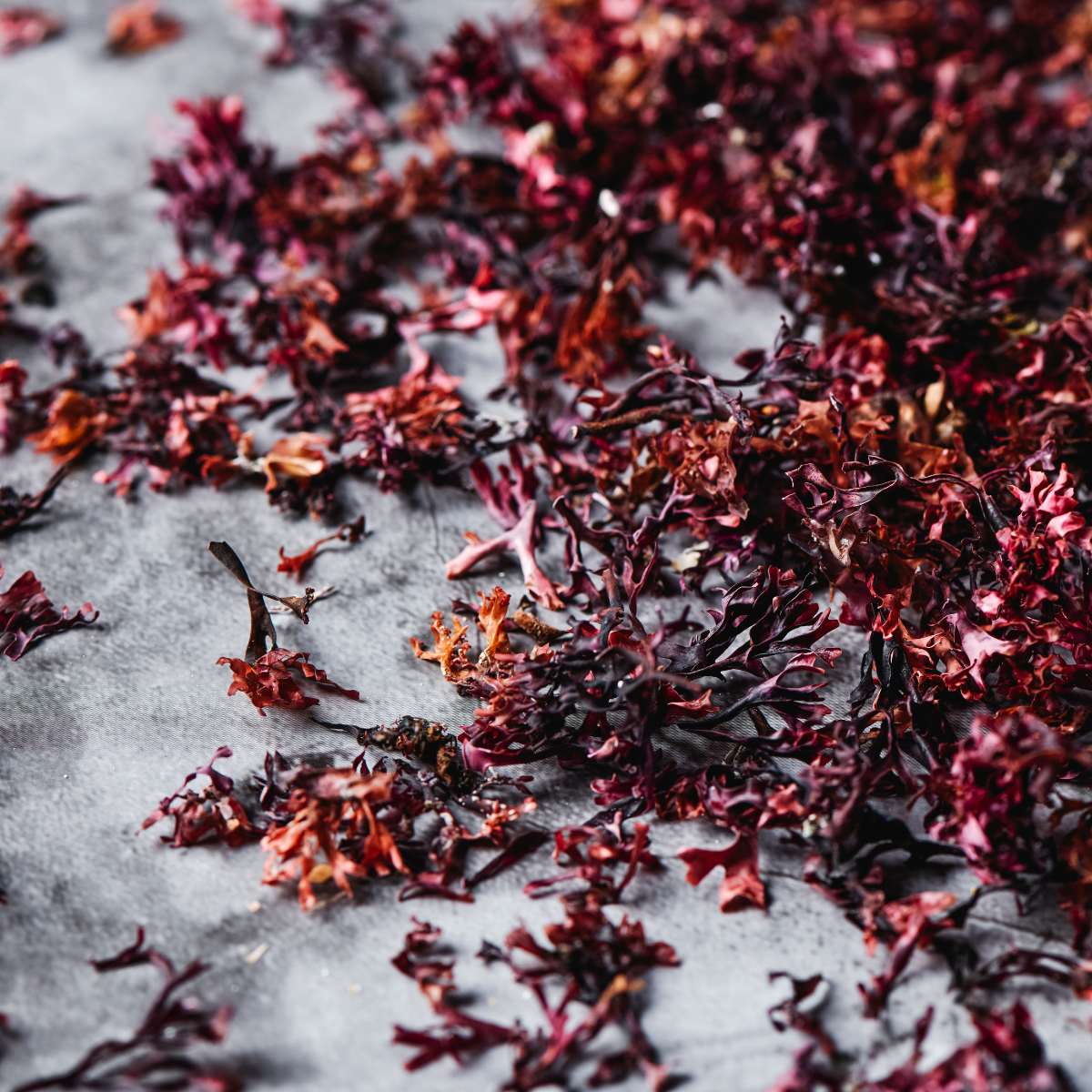
Substitutes for Carrageenan
For those seeking alternatives to carrageenan, several plant-based options offer similar functionalities in food production.
Agar agar, derived from seaweed, shares carrageenan’s gelling properties and is commonly used as a vegan-friendly thickening agent in desserts and confections. It makes perfectly thick and creamy vegan crème brûlée.
Similarly, guar gum, extracted from guar beans, and xanthan gum, produced through fermentation of sugars, serve as effective stabilizers and thickeners in a wide range of vegan food products. You can make delicious vegan marshmallows with both xanthan gum and agar powder!
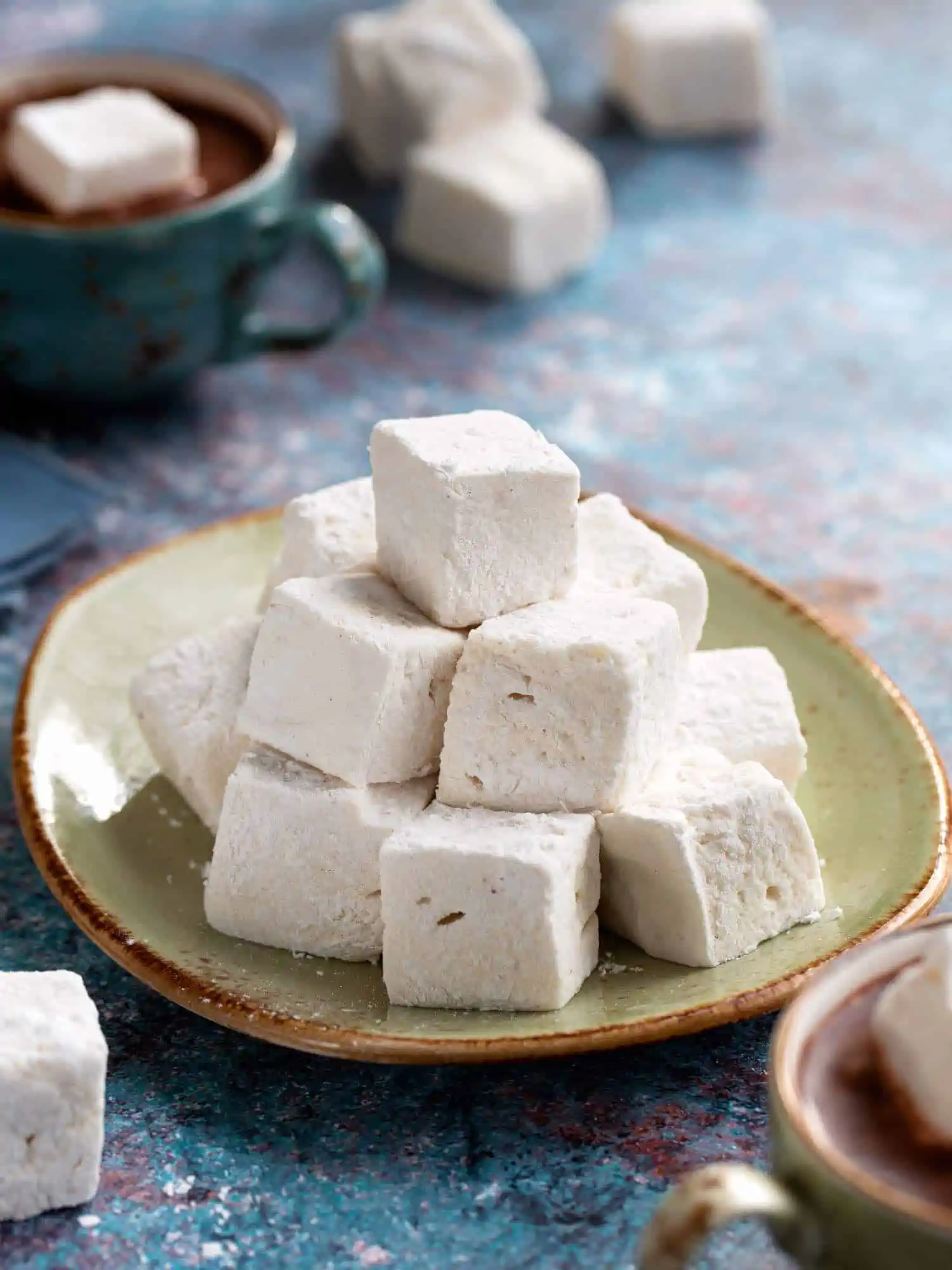
Additionally, certain natural gums such as locust bean gum and arabic gum can mimic carrageenan’s texture-enhancing capabilities without the need for animal-derived ingredients.
These plant-based substitutes provide viable alternatives for consumers looking to avoid carrageenan while maintaining the desired characteristics in their favorite plant-based foods!
Disclaimer: The information presented here is not to be construed as medical advice or used to diagnose, treat, cure or prevent any condition or disease.

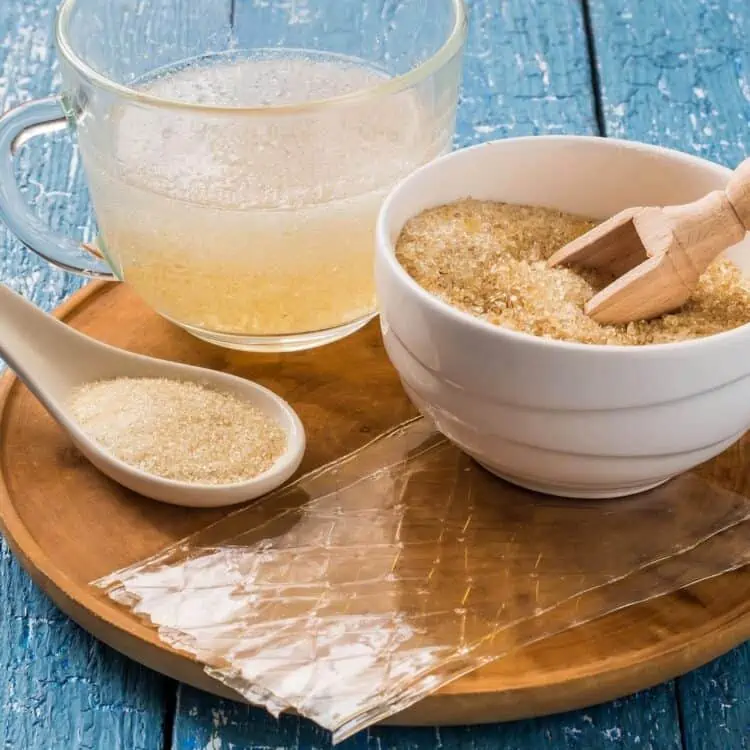
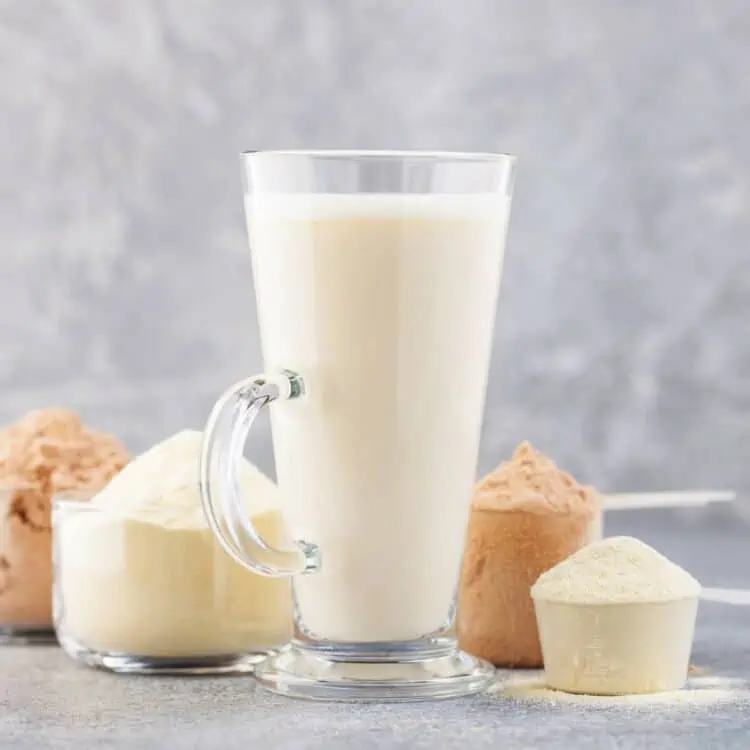
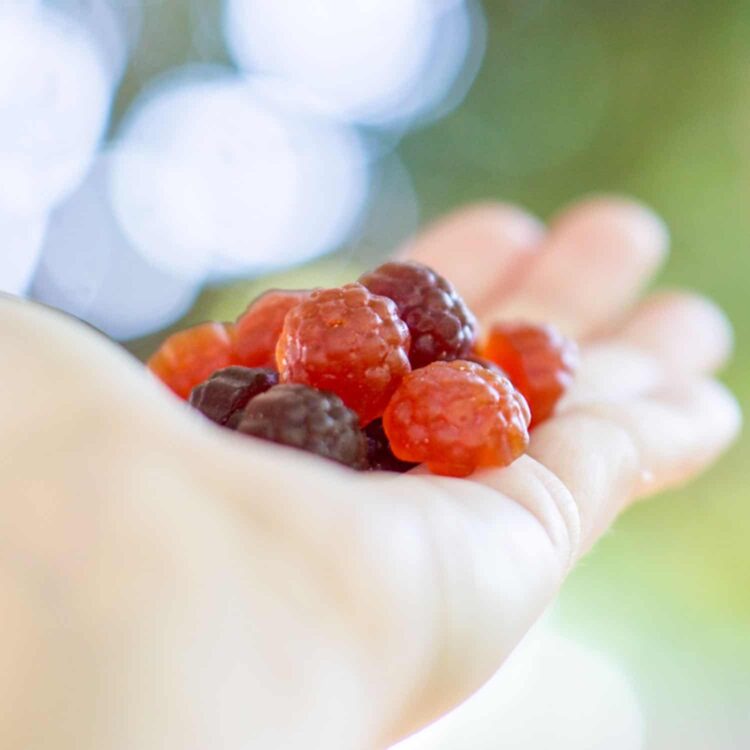


Leave a Comment